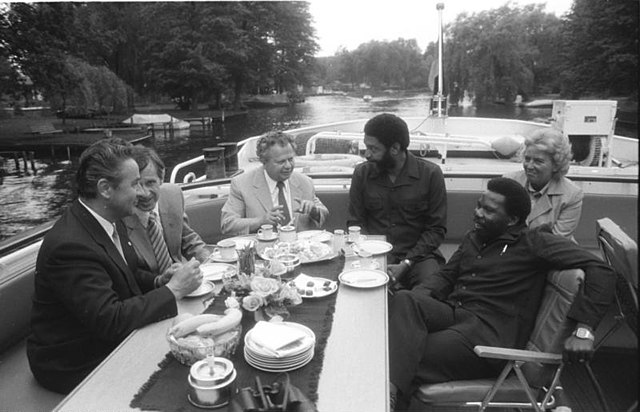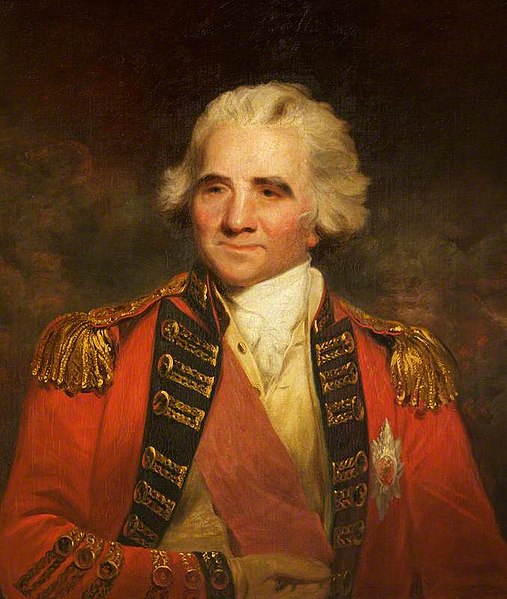The history of Grenada in the Caribbean, part of the Lesser Antilles group of islands, covers a period from the earliest human settlements to the establishment of the contemporary nationstate of Grenada. First settled by indigenous peoples, Grenada by the time of European contact was inhabited by the Caribs. French colonists killed most of the Caribs on the island and established plantations on the island, eventually importing African slaves to work on the sugar plantations.
Spanish ships and Carib boats in Granada, in a report by Nicolás de Cardona, 1632.
Maurice Bishop visiting East Berlin, East Germany, 1982.
US Army Rangers parachute into Grenada during Operation Urgent Fury
Fédon's rebellion was an uprising against British rule in Grenada. Although a significant number of slaves were involved, they fought on both sides. Predominantly led by free mixed-race French-speakers, the stated purpose was to create a black republic as had already occurred in neighbouring Haiti rather than to free slaves, so it is not properly called a slave rebellion, although freedom of the slaves would have been a consequence of its success. Under the leadership of Julien Fédon, owner of a plantation in the mountainous interior of the island, and encouraged by French Revolutionary leaders on Guadeloupe, the rebels seized control of most of the island, but were eventually defeated by a military expedition led by General Ralph Abercromby.
Fort St George, from where the British directed operations against Fedon, seen in 2012
Grenada mountains, over which both parties fought, often transporting cannon with them
Sir Ralph Abercromby by John Hoppner, c. 1798.
St. George's Anglican Church, illustrating the plaques commemorating Fédon's victims







